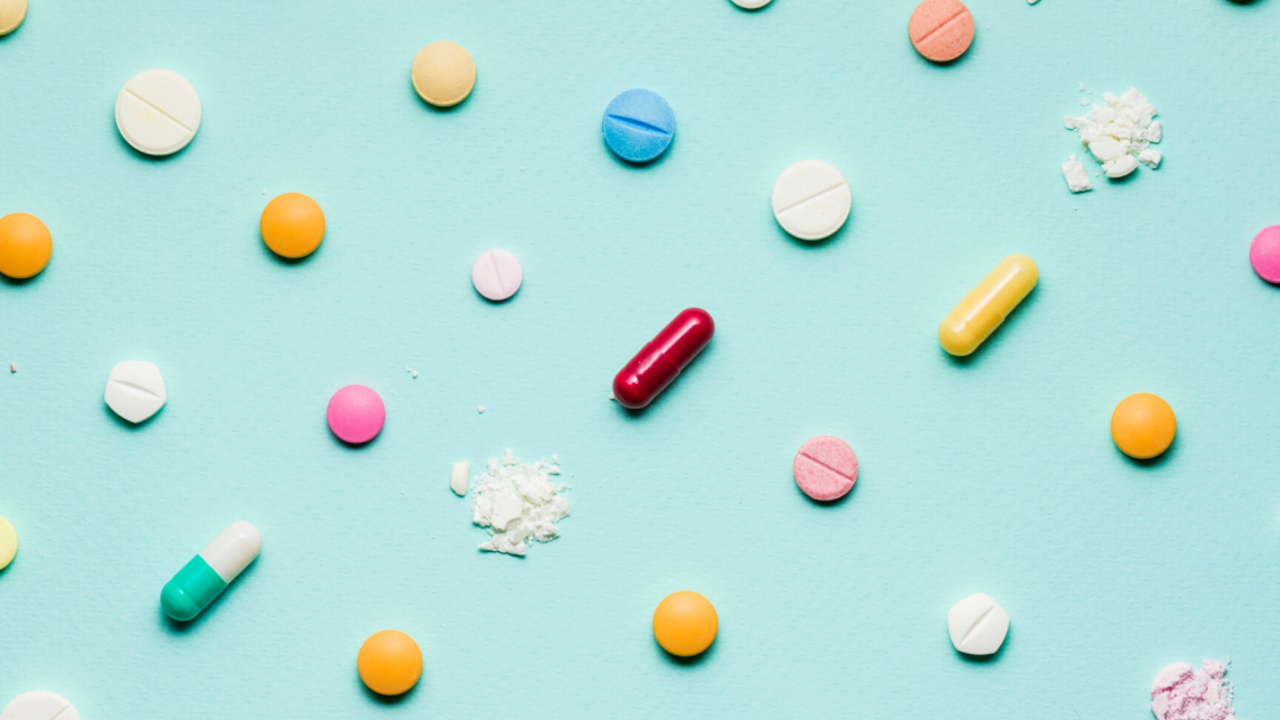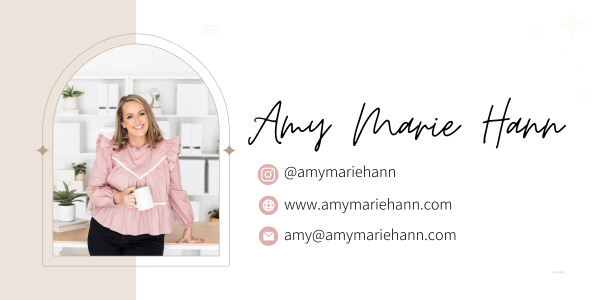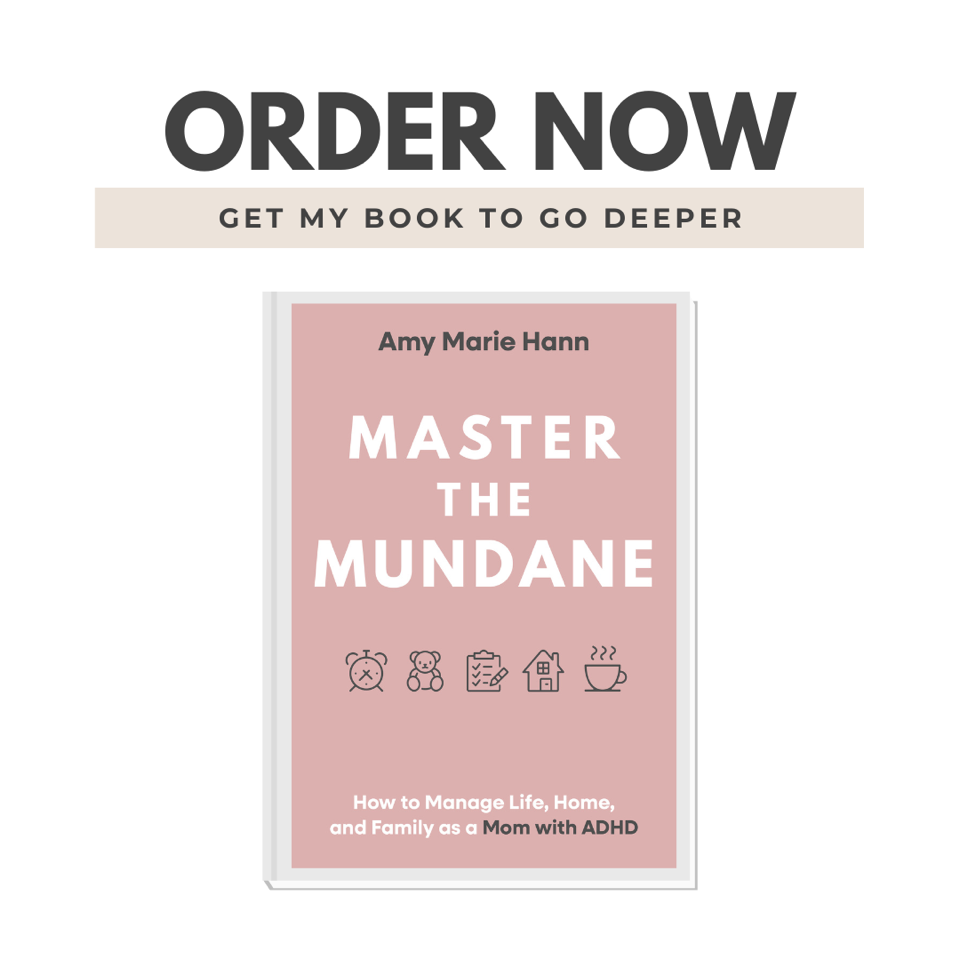How I Manage My ADHD as 40+ Mom of 3

This page contains affiliate links. If you choose to purchase after clicking a link, I may receive a commission at no extra cost to you.
The number one question that I get from people is usually something like...
Do you take medicine?
The number two question I get from people is...
How can you manage ADHD naturally?
Here's where I try and unpack both of those questions because the truth is that I do take medicine but I also am a huge believer that medicine is not a magic cure for ADHD and it's just one small part in my overall mental health strategy.
But first, a little background in case you are new here.
At the time of writing this, I'm 42 and was diagnosed with ADHD at the age of 5.
I was medicated most of my life but thought medicine was all that I needed. I thought ADHD was just about focus and attention and getting good grades.
I didn't understand the impact it had on my relationships or would have on my career, lifestyle or motherhood.
To be fair, not many people did then and I count myself incredibly fortunate that I was even diagnosed. Sadly, most women my age were missed so just that was a unique blessing.
The role of behavior modification and lifestyle as well as the impact that ADHD has on emotional regulation and executive functioning are fairly new concepts.
In my 20s I did go through a short season of rebellion and hating my parents for putting me on medicine. But with wisdom, age and perspective, I've come to see that my parents did what was best and I'm very appreciative that they made that decision for me.
All that to say...
To medicate or not can be a complicated question for many and I want you to know that I bring the perspective of an adult who has been on this journey for a long, long time.
I've tried many different medicines and more supplements than I can count.
I've worked with countless psychiatrists.
I've had several counselors over the year.
I am now raising three children all diagnosed with ADHD.
I've read almost every ADHD book that I can get my hands on.
And here is how I currently manage my ADHD.
I take medicine.
I currently take an extended release form of methylphenidate and an antidepressant. I tried many different combos but came to this one in my late 20s and have stuck with it. I was able to go without medicine during both of my pregnancies but got back on medicine around 3 or 4 months postpartum. I believe that whether to medicate or not is a decision that should be made with a psychiatrist. Medicine can be life changing but it doesn't work for everyone. For me, it's a night and day difference.
My biggest advice to you if you are deciding whether or not to take medicine for yourself or for your children is that the potential benefits are worth at least having a conversation with a physician. Sometimes we make the decision so much bigger than it needs to be and freak ourselves out. A consultation doesn't mean you have to try medicine. And trying medicine doesn't mean you have to stay on medicine forever. In fact, there are even some really cool genetic tests you can take now to see if medicine is an option for you and will tell which ones might help the most.
I take supplements.
I'm always wary to even talk about my supplement routine because to me supplements are an added benefit and not a replacement for medicine. There are a lot of people selling stuff on the internet claiming you can get off medicine. As someone who took themselves off meds without consulting a doctor, I highly discourage that approach. Instead, I talk with my psychiatrist about what I'm taking and she can offer insight in that front.
I personally take B-vitamins, Zinc, Fish Oil and Vitamin D in the morning with my medicine. There are some options that contain all of these things but they hurt my stomach so taking them individually works better for me.
In the evening before bed, I take magnesium, a sleep blend, and a probiotic.
I've tried so many different things over the years and I'm incredibly picky about the companies I buy from. Thorne, Integrative Therapeutics, and Pure are three of my favorite brands as they do extensive testing and don't use a bunch of fillers. These days, the more promises of a single product, the more skeptical I am about it!
I have no supplement sponsorships but have come to this list from trial and error trying to keep things simple and as low cost as possible.
Link to the Supplements that I Take
I Exercise Regularly
Okay, I'm the first to admit that I do enjoy exercise and have always liked going to the gym. But knowing now how necessary it is for my mental health has helped me to make it a consistent part of my life. I especially really enjoy weightlifting and have gone in with that. I've tried so many things over the years and may have a new favorite thing in a few years but I've learned that exercising 4-6 days a week is a must for my brain to function at its best. (Side note, I have combined type ADHD and am very fidgety so exercise is super helpful for that.)
I Prioritize Sleep
If I don't get 7 hours of sleep, my brain goes to mush. My brain really needs more like 8-9 hours of sleep. I'm a mom of young kids so I often have little people waking me up and climbing in bed but I try and control as much as I can around getting good sleep. I don't do a lot of evening activities and created a lifestyle where I'm regularly getting good sleep.
I've Embraced Behavior Modification
Studies are showing that medicine + behavior modification is the most effective way to treat ADHD. As a parent of kids with ADHD, I know that the way I phrase things, my tone, my expectations have an enormous impact on whether my kids will comply.
I've spent a lot of time and energy understanding how ADHD impacts my expectations of myself and reframing so much. This is really what is at the heart behind Master the Mundane. I love helping other moms find their unique way of doing life in light of their ADHD brains.
Dietary Changes
There is some compelling research that a gluten and dairy free diet can help lessen some ADHD issues but it is not absolutely conclusive and making these kind of changes require an enormous amount of executive functioning on the part of us moms. I feel best when I'm avoiding gluten, overly processed foods and lactose. I'm not dogmatic about it and don't have my kids on a gluten free/dairy free diet. That would eliminate all of their safe foods and it is not a battle I'm willing to fight right now.
I have also noticed that consuming alcohol has a major impact on my executive functioning. I think it's partly because of how it impairs my sleep and when I don't sleep well, my brain really struggles the next day. The less I drink, the better I feel, sleep, and function.
The same is true with caffeine. I feel my best with one cup of green tea in the morning. I can occasionally handle a second green tea at lunch time but that often gives me an afternoon crash. I did okay with one cup of coffee for a long time but in the last year or so the acid started really upsetting my stomach. Green tea does have some added benefits for the ADHD brain but for me it's also a tummy thing.
I've done lots of therapy
I began counseling in my early 20s and the process was life changing. I'd always struggled articulating my thoughts and feeling and having that safe space allowed me to understand my brain and see how my ADHD and anxiety were impacting my thought life.
I'm currently working with a somatic therapist and have loved this experience. I knew that I needed help accessing trapped emotions and deeply held beliefs from my past and my current therapist has helped me to really work through that.
I have never worked with and ADHD coach but have personally found therapy to more helpful for my specific needs.
I've found my people
Even as someone diagnosed with ADHD at a young age, I masked for many years and spent so much mental energy trying to fit in with my neurotypical peers.
Finding a safe space where I can articulate my unique quirks, needs and desires has been life changing. Being able to share openly through my content and through Master the Mundane has enabled me to share more openly in my real life. I feel more seen and known and spend much less energy trying to fit in and please others not just online but in my real, everyday life.
I lean hard into routines
The only way that I can maintain the habits that help me thrive is through routines. It took me years to figure out how to create a routine that I could actually maintain because for years my expectations were WAY over the top. I still want to accomplish way more than is humanly possible in a given day but have learned to create a rhythm to my life where I still see the growth and progress even when I have to abide by the same 24 hours/7 days a week restraints of mere mortals. Creating visuals and systems for managing my life has been key in this process. I'm prone to get derailed on an ongoing basis and need LOTS of tools and reminders to keep me on track.
I've gotten help with my hormones
When I turned 40 a lot changed for me. There is a major connection with estrogen and dopamine and as my estrogen levels dipped with perimenopause, I was struggling to function at the end of my cycle. It was almost as if my meds weren't working at all and I had zero physical energy. And even worse, the quality of my sleep was really impacted. I was not prepared for these changes in my early 40s but getting on hormone replacement therapy has helped immensely.
I'm a work in progress
This one is by far the hardest. You might read this list and think, "Wow, she's figured out a lot," but I have to be honest - I don't always go to bed when I should or get to the gym like I know is good for me or eat the foods that I know help me feel my best. I'm not always my best but the more that I've learned to give myself grace and focus on the GOOD that I am doing instead of beating myself up when I fall short... the easier it has been to stay consistent with the habits that help me.
I also haven't added all of these habits at the same time. I've been on this journey of self growth for a solid 20 years! My oldest is 13 and my youngest is 5 so it was 5 years ago that I dug deep to really understand my brain. AND it was two years ago that I got really serious about routines and self care.
My advice is go slow and to incorporate 1 new change at a time so you can tell what is helping. There are so many things you can do to help but it's also really overwhelming to try do everything at one time.
A few books that I'd recommend checking out if you want to dig deeper.
ADHD 2.0 by Dr. Ned Hallowell
For years I recommended his book Driven to Distraction but this is the updated version of that. It's short chapters and a really great synopsis of the current ADHD research.
Self Care for People with ADHD by Dr. Sasha Hamdani
This is a very broad overview of things that can help people with ADHD from the perspective of a board certified psychiatrist. It's a very quick read.
Your Brain's Not Broken by Dr. Tamara Rosier
And for ongoing support as you navigate motherhood with ADHD, checkout Master the Mundane.








